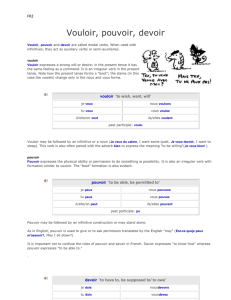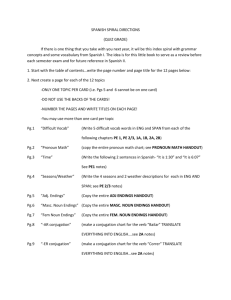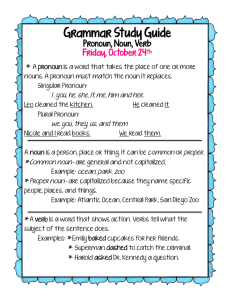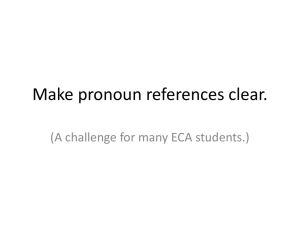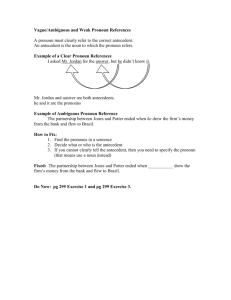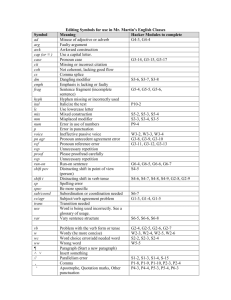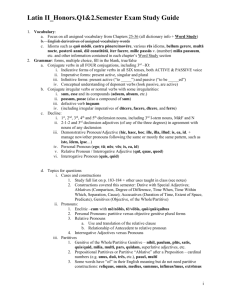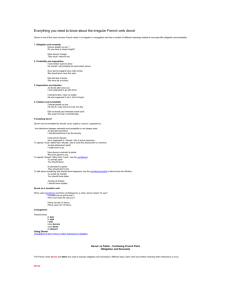FR_2_U3_L10_Notes - Northwest ISD Moodle
advertisement
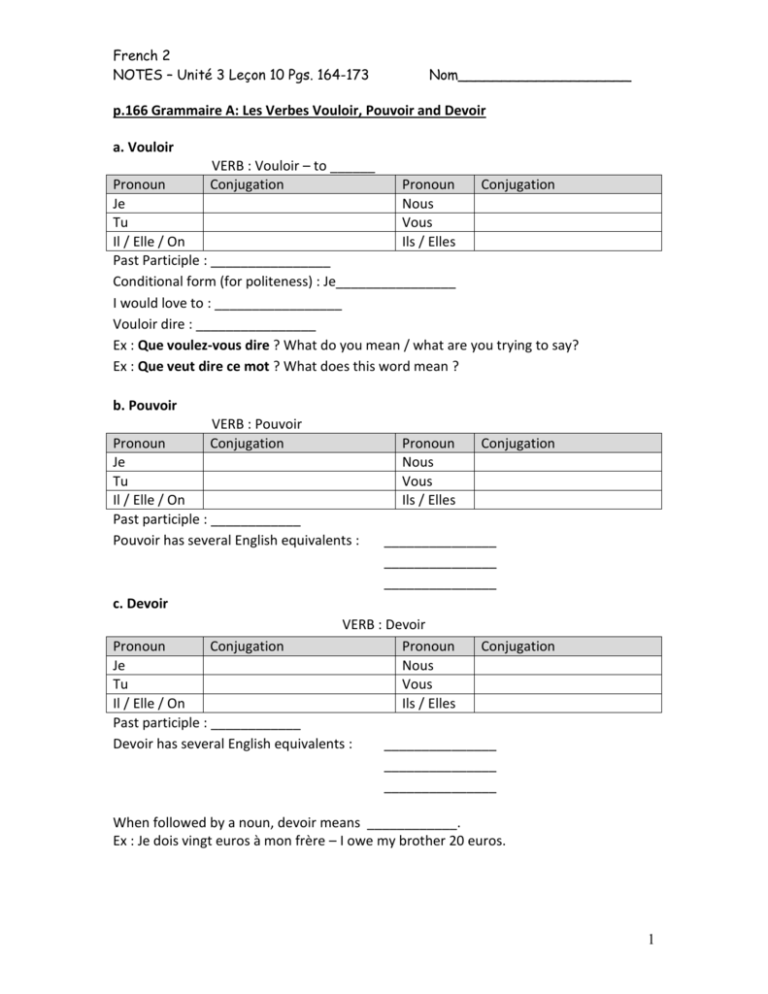
French 2 NOTES – Unité 3 Leçon 10 Pgs. 164-173 Nom____________________ p.166 Grammaire A: Les Verbes Vouloir, Pouvoir and Devoir a. Vouloir VERB : Vouloir – to ______ Conjugation Pronoun Pronoun Conjugation Je Nous Tu Vous Il / Elle / On Ils / Elles Past Participle : ________________ Conditional form (for politeness) : Je________________ I would love to : _________________ Vouloir dire : ________________ Ex : Que voulez-vous dire ? What do you mean / what are you trying to say? Ex : Que veut dire ce mot ? What does this word mean ? b. Pouvoir VERB : Pouvoir Conjugation Pronoun Je Tu Il / Elle / On Past participle : ____________ Pouvoir has several English equivalents : Pronoun Nous Vous Ils / Elles Conjugation _______________ _______________ _______________ c. Devoir VERB : Devoir Pronoun Nous Vous Ils / Elles Pronoun Conjugation Je Tu Il / Elle / On Past participle : ____________ Devoir has several English equivalents : Conjugation _______________ _______________ _______________ When followed by a noun, devoir means ____________. Ex : Je dois vingt euros à mon frère – I owe my brother 20 euros. 1 French 2 NOTES – Unité 3 Leçon 10 Pgs. 164-173 Nom____________________ p.168 Grammaire B: L’article partitif : du, de la When talking about WHOLE items the French use the _____________ article ______ or ________. When they are speaking about parts of an item or some quantity of an item they use the ______________ article ______ or _______. In English we often leave out the words “some” or “any” but in French you cannot! For example, you might say in English, “do you want salad?” but in French you must say “do you want SOME salad?” Examples: A chicken : _______________ Some chicken: ______________ A melon: _______________ Some melon: _______________ A salad: _________________ Some salad: ________________ A pie: __________________ Some pie : _________________ The partitive article has the following forms: Masculine Feminine du de l’ + vowel sound de la de l’ + vowel sound du fromage, du pain, de l’argent de la salade, de la limonade de l’eau Examples: Here is some bread. ______________________________________________________________ Philip is eating (some) cheese. ______________________________________________________________ Do you want (some/any) salad? ______________________________________________________________ Did you eat some pie? ______________________________________________________________ I want an apple. ______________________________________________________________ I want some of the apple ______________________________________________________________ 2 French 2 NOTES – Unité 3 Leçon 10 Pgs. 164-173 Nom____________________ p.170 Grammaire C: L’article partitif dans les phrases négatives Don’t forget that when using the partitive article in a negative sentence that the partitive article changes. (It really is much easier!). After a negative expression the partitive articles du and de la change to _______. After a negative expression the partitive article de l’ changes to ___________. Negative expressions to remember: ne…pas, ne…jamais, ne…plus (we also have ne…personne and ne…rien but they don’t use partitive articles !) Examples: I don’t want any bread. ______________________________________________________________ I don’t want any cheese. ______________________________________________________________ There is no more orange juice. ______________________________________________________________ He never drinks coffee. ______________________________________________________________ They don’t want anymore pie. ______________________________________________________________ We don’t want any chicken. ______________________________________________________________ 3
